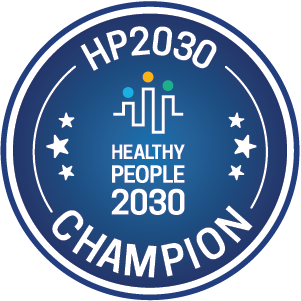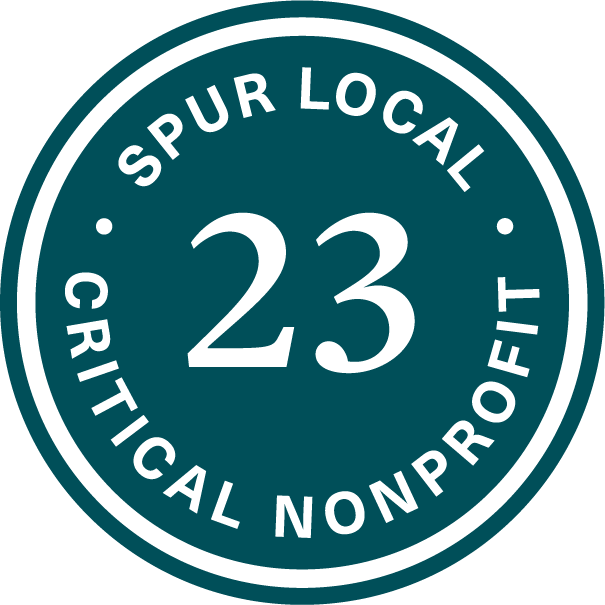 April 10, 2018, is National Youth HIV/AIDS Awareness Day (NYHAAD). On this day, we recognize the impact of HIV/AIDS on young people and acknowledge the amazing contributions of young people to the fight against HIV/AIDS. The theme of this year’s NYHAAD is “Positively PowerFULL: Young People Building an AIDS-Free World”. To this end, we asked three of our student-athlete leaders on to reflect on these questions about NYHAAD:
April 10, 2018, is National Youth HIV/AIDS Awareness Day (NYHAAD). On this day, we recognize the impact of HIV/AIDS on young people and acknowledge the amazing contributions of young people to the fight against HIV/AIDS. The theme of this year’s NYHAAD is “Positively PowerFULL: Young People Building an AIDS-Free World”. To this end, we asked three of our student-athlete leaders on to reflect on these questions about NYHAAD:
- How has your work with TGP shaped the way you think about youth HIV/AIDS awareness?
- How can you personally drive towards an AIDS free generation?
These are their responses:

Spencer, Junior from Howard University
1. After working with Grassroots for the past 3 years and counting, my perspective of the youth has continued to change for the better. Educating middle school kids about HIV/AIDS and sexual awareness isn’t simply just flashcards and diagrams, it’s much bigger than that. This generation has access to all of the world’s knowledge in the palm of their hands. The quick access to technology, the instant spark of conversation, or even the dramatic speed by word-of-mouth make the spread of false information that much easier.
As a student-athlete, educator, and leader, I’m extremely proud of my ability to steer the younger generation in the right direction. My colleagues and I at TGP work tirelessly towards educating the youth in hopes of achieving an AIDS free generation.
2. My commitment, hard work, and dedication to TGP adds value to the legacy I want to impress on the organization and my community. I hope to evoke change not only within the youth of DC, but in all corners of the world. Like the students in our programs, I too have the world at my disposal, and I’m more than willing to lend it off to the youth in a healthy, positive way. That is why I love working with and for TGP. Whatever obstacle that gets in my way, I continue to remind myself that I can personally make a difference in my community creating an AIDS free generation.
Isabel, Sophomore from Georgetown University
1. Before working with TGP, I had never really thought about HIV/AIDS as a problem that had anything to do with youth. But joining Grassroots opened my eyes to the fact that is HIV a huge issue for young people. More than one in every five new cases of HIV in the US is someone aged 13-24, and HIV-positive individuals in that age group are the least likely to get tested or seek treatment.
Young people are the key to ending the AIDS epidemic in our community and in the world. I am constantly amazed by the amount of misinformation our students have heard about HIV, and how dangerous that misinformation could potentially be. At the beginning of our programs, many of them don’t know how HIV is transmitted or believe myths about how it can be prevented. I’ve had students who thought that only gay people could contract HIV, or that HIV can be spread through handshakes or hugs. But that’s why organizations like Grassroots are so important! After just eight practices, our students have the tools they need to protect themselves against HIV and spread the knowledge they’ve gained throughout their communities.
Real change happens not only when young people are educated about HIV but also when young people take action to end it. TGP is an organization that was founded by a young person (shoutout to T-Spence!) and is largely driven by the work of young people. I have had the privilege of meeting some incredibly intelligent, talented, and determined student athletes through Grassroots. Despite insanely busy schedules, they spend an immeasurable amount of time and energy working to end HIV/AIDS because they are genuinely passionate about the cause. Their hard work, enthusiasm, and positive attitudes constantly inspire me. Because of them, I have hope that an AIDS-free world is possible.

2. Educating young people is absolutely essential to ending AIDS. I am working towards an AIDS free generation through volunteering with TGP and helping to educate young people in DC. In our programs, we emphasize the importance of taking action in one’s community. It is my hope that by teaching a class of 20 sixth graders, I am indirectly teaching many more of their friends and family members. My students will grow up to be educators and leaders in their community, and thanks to TGP, they will have the power and the knowledge to end HIV/AIDS once and for all.
1. “HIV Among Youth,” Centers for Disease Control and Prevention. Last modified February 12, 2018, https://www.cdc.gov/hiv/group/age/youth/index.html
Sydney, Senior from Howard University
1. This is my third year taking action in my community with Grassroots and I could not be more inspired by the initiative TGP takes to mold non-traditional health educators to reduce health disparities.

But the fact remains that worldwide, 1.8 million [1.6 million–2.1 million] people became newly infected with HIV in 2016, according to UNAIDS.
To put that into perspective, that means that a new person is infected every 15 seconds, and these new infections occur disproportionately in populations most at risk such as in our very own DC metropolitan community.
Stigma and discrimination drastically threaten the health of people living with HIV/AIDS, which impacts overall quality of life. Discrimination is harmful to more than just those living with HIV/AIDS. So instead of pointing fingers at who we think is perpetuating the problem, let’s each become a part of the solution. We can start by talking without judgment about testing, treatment, and prevention.
Having the opportunity to enter into DC area Public Charter schools and break the stigma at both the community level, but also the healthcare provider level ensures a welcoming, safe, and provides equal access to resources available around DC.
2. For me, National Youth HIV/AIDS Awareness Day is a time to reflect on how to address HIV in our communities. It is a wake-up call loud enough that we cannot continue to ignore. I experience the awkward stares from my students (also my peers if I’m keeping it real) initially when they feel uncomfortable talking about HIV in candid conversations during lesson plans.
We are constantly analyzing data at the end of programming to see what we’ve done really well and where we can improve within the schools. If we genuinely want to see an HIV/AIDS-free generation we have to eliminate the stigma projected in the dangerous rhetoric of our classrooms, campus’, and communities. Not only has TGP pointed me in the direction of my career, but it has taught me skills that I will carry with me for the rest of my life. I’m extremely grateful for the opportunities that TGP has provided me to work with world-renowned global leaders to produce innovative solutions to fight this epidemic.
Follow Grassroots on Instagram (@thegrassrootproject), Twitter (@GrassrootDC), and Facebook. And join us in the conversation of #NYHAAD all day long on Twitter!









